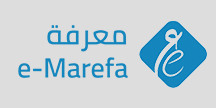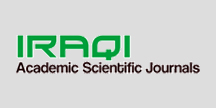The Role of Good Deeds in Construction of Charitable Community in the Holy Quran: A Subjective Study
DOI:
https://doi.org/10.21271/zjhs.25.5.8Keywords:
benevolence, philanthropy, community of benevolence, culture of benevolenceAbstract
The seeking and trying of getting happy and fortunate life is related human history, so they tried various ways and forms to obtain and fortunate through history. Prophets, scientists, reformers, wits, philosophers, politicians and economists are talked, researched on and wrote about it. The Holy Quran as the last inspiration by God shows its philosophy and fortunate to individuals and community. This study is an attempt to confirm and proof that good deeds and non return charity are of the highest and best values to build the community in the view of the Holy Quran where they are the aim and purpose of the Holy Quran, so that here it is named as the benevolent and joyful community. As a result, this research is proposed in the view of the Holy Quran which is entitled as (The Role of good deeds in construction of welfare community). The study consists of four sections; first section is about charity and good deeds in the Holy Quran and explaining the reality and actual meaning of good deeds, moreover, the phenomena and scenes of it in the Holy Quran. Second section talks about good deeds in the philosophy and perspective of the Holy Quran where four views are shown for good deed phenomenon, they are notion of faith, notion of on purpose, notion of systematic and notion of cosmic. Third section is about the importance and privilege of the community which is the purpose of the Holy Quran in the outward or inward perspectives, in addition to the relation between good deeds and welfare community. The last section tackles the concept and strategy of establishing the culture of good deeds in the individuals and community, so as to make the awareness of doing good deeds in the community.
Finally, we ask God that this academic study become goodness and beneficial for esteemed readers.
References
ابن الجوزي، ع.ع.م. 1405هـ. المدهش ط2. بيروت. دار الكتب العلمية.
ابن بطوطة. 1987. رحلة ابن بطوطة (تحفة النُّظار في غريب الأمصار وعجائب الأسفار). بيروت. دار إحياء العلوم.
ابن عاشور، م.ط. 1984. التحرير والتنوير. تونس. دار التونسية.
ابن عاشور، م.ط. 1985. اصول النظام الاجتماعي في الاسلام. ط2. تونس ـ جويلية. شركة التونسية.
ابن عاشور، م.ط. 2009. مقاصد الشريعة الاسلامية. ط4. تونس. دار السلام.
ابن فارس، أ.ف.ز. 1979. معجم مقاييس اللغة. دار الفكر.
أبو زهرة، م.1991، التكافل الاجتماعي في الاسلام. ط2. القاهرة. دار الفكر العربي.
الاصفهاني، أ. ح. م. 1412هـ. المفردات في غريب القرآن. بيروت. دار القلم.
البخاري، م. إ. إ.1987. صحيح البخاري. القاهرة. دار الشعب.
جمعة،ع. 2014. المساواة الانسانية في الإسلام، بين النظرية والتطبيق. القاهرة. دار المعارف.
الرازي، م.أ.ع. 1995. مختار الصحاح. بيروت. مكتبة لبنان ناشرون.
عبد الفتاح، أ. 2001. القيم السياسية في الإسلام. القاهرة. الدارالثقافية للنشر.
الفارابي، أ. 2006. رسالة السياسة المدنية. دمشق. دار الينابيع.
القرضاوي، ي. ق. 1985. مشكلة الفقر وكيف عالجها الإسلام. بيروت. مؤسسة الرسالة.
القرضاوي،ي. ق. 2008.أصول العمل الخیري في الإسلام في ضوء النصوص والمقاصد الشرعية.ط2.القاهرة.دار الشروق.
لابية، ف. م. وكولينز، ج. د.ط. صناعة الجوع. الكويت.عالم المعرفة.
الماوردي، أ. م. 1985. أدب الدنيا والدين. ط4. بيروت. دار اقرأ.
مركز دراسات قناة النيل الثقافية. د.ط. ثقافة الفقراء. القاهرة. الهيئة المصرية العامة للكتب.
مسلم، ح. 2010. صحيح مسلم. ط5. بيروت. دار إحياء التراث العربي.
النيسابوري، ن. م.ح. 1416 هـ. غرائب القرآن ورغائب الفرقان. بيروت. دار الكتب العلميه.
وزارة الأوقاف والشؤون الدينية. 2012. مجلة التفاهم. سلطنة عُمان- مسقط. 2012.عدد: 35.
Downloads
Published
How to Cite
Issue
Section
License
Copyright (c) 2024 Idrees Qadir Hamadameen

This work is licensed under a Creative Commons Attribution-NonCommercial-ShareAlike 4.0 International License.
Except where otherwise noted, content on this site is licenced
under a Creative Commons Attribution License 4.0 (CC BY- 4.0)










